Medieval European Medical Manuscripts
Please set your timezone at https://www.chstm.org/user
Consortium Respectful Behavior Policy
Participants at Consortium activities will treat each other with respect and consideration to create a collegial, inclusive, and professional environment that is free from any form of discrimination, harassment, or retaliation.
Participants will avoid any inappropriate actions or statements based on individual characteristics such as age, race, religion, ethnicity, sexual orientation, gender identity, gender expression, marital status, nationality, political affiliation, ability status, educational background, or any other characteristic protected by law. Disruptive or harassing behavior of any kind will not be tolerated. Harassment includes but is not limited to inappropriate or intimidating behavior and language, unwelcome jokes or comments, unwanted touching or attention, offensive images, photography without permission, and stalking.
Participants may send reports or concerns about violations of this policy to conduct@chstm.org.
Upcoming Meetings
There are no currently scheduled upcoming events.
Past Meetings
-
October 28, 2021
Gift-giving and Knowledge Exchange in Elite Medical Manuscripts
Prof Faith Willis
The springboard for this discussion is a manuscript recently acquired by the Osler Library of the History of Medicine at McGill University. The book was created around 1515, and consists of two parts: a collection of antidota and experimenta in both Latin and French (fols. 1-27), and a regimen of health drawn up by one François Dalais, a physician in the service of the King of France, for the man who commissioned the manuscript. This was François II de Rohan, Archbishop of Lyon (1480-1536). The manuscript was prepared as a gift for the Archbishop's brother, Charles de Rohan-Gié, Vicomte de Fronsac and d'Orbec and governor of Touraine (1478-1528). It is a small but exquisite volume, bound in red velvet, expertly written and richly decorated.
The book, therefore, was a gift of knowledge, at once prestigious and personal. A significant number of the recipes it contains were obtained from other individuals, sometimes explicitly as "gifts". These included members of the nobility and higher clergy (directly or through their employees, e.g. apothecaries and physicians, but also from people of less exalted background (a merchant of Rouen named Jehan Cormer, doctors practicing in Paris or Montpellier), and even unnamed individuals ("dun angloye"). One recipe came from the Archbishop's (and the recipient's) own brother, Pierre, Seigneur de Frontenay, de la Marche et de Gié., andVicomte de Carentan, who perished in the battle of Pavia in 1525. In some respects this is typical of experimenta: the efficacy of a recipe is guaranteed by ("proved"/"approved") by someone's experience, and the higher the status of that "someone", the more valuable the recipe. It is noteworthy that a certain Dr Bernard is frequently identified as the source of a recipes, though a phrase is sometimes added to specify that the treatment is actually "esprouvee" by the Archbishop himself.
The manuscript is therefore at the centre of a complex web of knowledge exchange: from the Archbishop to (and from) his brother(s); from other grandees to the Archbishop; from the doctors or apothecaries to the Archibishop, perhaps via their noble patrons. Even a regimen designed specifically for the Archbishop could be offered to his brother as part of this donation. To extract all the rich social meanings of this volume requires overlapping frameworks of anaysis: traditions of exchanging medical advice amongst elites; communications networks that work both along and across social networks; how oral knowledge becomes written knowledge; Latin and vernacular code-switching; the role of the manuscript book in the age of print; how to resolve the apparent paradox of a "deluxe" manuscript of "practical" medicine; and the locus of medical authority and experience.
--
Prof Faith Willis (McGill University) is a historian of medieval Europe, specializing in the history of science and medicine. She has published translations and studies of medieval time-reckoning (computus) and medicine. Her current research focuses on medical education and the transmission of medical knowledge in the 12th century. She is preparing an edition of the earliest commentaries on the Articella, the first anthology of medical texts designed to support formal teaching to be created in Western Europe, for the "Edizione nazionale Scuola Medica Salernitana" (Florence). The Articella marks the birth of academic medicine, and these commentaries allow us to reconstruct the intellectual dynamics of this crucial event. She is also edited the full five-book version of On the natures of things (De naturis rerum) by the English scholar Alexander Neckam (d. 1217), for the series "British Writers of the Middle Ages and Early Modern Period". Prof. Wallis teaches undergraduate and graduate courses in the history of medicine, ancient medicine, medieval medicine, and general medieval history.
(note: session will last an hour)
-
September 30, 2021
Global contexts: Jain medical recipes in early Hindi - SESSION POSTPONED UNTIL FURTHER NOTICE
Dr Adrian Plau
This talk will explore global contexts to medieval medical manuscripts by looking to understudied traditions of early modern vernacular medical treatises and recipes from North India currently held by Wellcome Collection. I’ll highlight the historiography of the ‘medieval’ in global contexts and its uses in Western imperialist propaganda and contemporary orientalist discourse, Wellcome Collection’s current work with manuscript cataloguing metadata, and present examples of vernacular North Indian medical manuscripts, including early research on the first-ever medical treatise in Hindi.
--
Dr Adrian Plau is Manuscript Collections Information Analyst at Wellcome Collection, working particularly with making the Collection’s global manuscripts more accessible and discoverable to wider audiences. As a 2018-2019 Wellcome Trust Research Bursary-holder, he led a project on the Wellcome Collection’s early Hindi medical manuscripts. His 2018 SOAS PhD presented a critical edition and literary study of the Sitacarit, a vernacular narrative of the seventeenth century that recounts the Ramayana epic from Sita’s perspective. His research has featured in publications such as Religions, Sikh Formations, and the Oxford History of Hinduism. He is a contributor to Digital Orientalist and writes a monthly column on Indian poetry for Asiapunkt.
(note: session will last an hour).
-
August 26, 2021
Practical use of medical manuscripts
Dr Kathleen Walker-Meikle
What makes a medieval medical manuscript “practical”? Is it a question of genre or a judgement that can only be made on a manuscript by manuscript basis? How do we ascertain contemporary and later readership and use? Is the term ‘practical’ at all useful when examining medieval manuscripts? We started this workshop series with two luxury illuminated recipe collections (Wellcome 626 & Osler’s François II de Rohan ms), how would we classify them? I will be drawing on my work on recipes collections and their later adaptions, poisons literature, and in particular an animal materia medica text, translated from the Arabic, extant in manuscripts ranging from the 13th to the 16th century.
--
Dr Kathleen Walker-Meikle's research interests focus on the relationship between animals and humans, particularly in medicine and natural history. She received her PhD from University College London, and published Medieval Pets (Boydell & Brewer, 2012), the first social and cultural study of companion animals in the medieval period. Since then, Kathleen has focused on the history of medicine and its intersections with animals, from snake bites to materia medica. Kathleen has published on medieval toxicology, pharmacology, and disease, and her most recent publication is: ‘Animals: Their Use and Meaning in Medieval Medicine’, in Iona McCleery, ed., A Cultural History of Medicine in the Middles Ages (Bloomsbury, 2021).
(Note: session will last an hour).
-
July 29, 2021
ECR session on Medieval European Medical Manuscripts
Dear members, during this session we will hear from 2 PhD Candidates who are currently researching different aspects of Medieval European Medical Manuscripts.
Luthien Cangemi is a first year PhD student in Scandinavian Studies at UCL looking at Old Norse medical manuscripts. Previously Luthien studied 'The Role of Women in Old Norse Medicine' for an MPhil in Anglo-Saxon at the University of Cambridge and a masters in “Medicine in the Medieval Germanic Tradition: Health, Body and Illness in the Old Norse language and Literature” at the University of Padova.
Læknir ok Lægbók: The Materia Medica in Old Norse Manuscripts
Located at the farther north of Medieval Europe, Iceland might have been geographically at the periphery of the Christendom but was certainly not isolated from a cultural viewpoint. Icelandic materia medica is one of the results of this cultural exchange, revealing a syncretism of local and foreign traditions, which includes but not limited to Classical medical treatments, Judeo-Christian formulas, and traditional elements such as runes, otherworldly beings and heathen gods.
This multitude of elements denounces a cultural encounter between the Continent and Iceland which affected local conceptions of health and illness. The re-negotiation of health and illness in the materia medica and the employment of certain remedies might help us to map a route of circulation of Mediterranean medical practices and theory in the North. Scholarship has convincingly argued for an Old-Danish-Norwegian route of circulation of medical practices in Medieval Iceland; however certain remedies seem to closely resemble the content of Old and Middle English medical miscellanies. In this paper, Luthien will address this lack in scholarship in an attempt to provide insights into a possible English-Norwegian stream of circulation of medical knowledge in Medieval Iceland.
Vanessa Da Silva Baptista is a third year part-time doctoral candidate with the UCL Department of History, London supervised by Professor Sophie Page. Her research focuses on magic tricks and chemical experiments as a form of domestic entertainment and play in the later Middle Ages. She is particularly interested in ideas of play, experimentation, entertainment, knowledge making and knowledge recording.
Her paper will introduce magic tricks as a category of medieval recipe literature in fourteenth and fifteenth century medieval manuscripts. It pays particular attention to the medical manuscripts that collected magic tricks to determine what types of magic tricks medical practitioners collected and why.
-
June 24, 2021
Please join us on Thursday, June 24, for the next meeting of the working group on Medieval European Medical Manuscripts:
Manuscript to print and print to manuscript: medical knowledge in transition
Revised update to this week's meeting:In this session we will look at some of the ways in which medical knowledge that circulated in medieval manuscripts transitioned to medical knowledge that circulated in printed books...and then sometimes made its way back into manuscript.
The session will begin with a very short overview of the transition of medieval medical manuscripts to print. Winston will then talk about the production of Macer Floridus in print, followed by Lori talking about a late 16th-century manuscript that contains a comprehensive rewrite of medieval medical texts that were already circulating in print. Both will address the ways in which medical knowledge that circulated in medieval manuscripts transitioned to medical knowledge that circulated in printed books...and then sometimes made its way back into manuscript.
Dr Winston Black (Gatto Chair of Christian Studies, St Francis Xavier University, Antigonish, Nova Scotia) will present on his research into the textual history of the De viribus herbarum of Macer Floridus, a herbal written in the eleventh century that remained one of the most popular medical texts for the following five centuries. His focus today will be on various changes made to the text in its transfer from manuscript to print in the 15th and 16th centuries.
Dr Lori Jones (Postdoctoral Fellow, Department of History, Carleton University, Ottawa) will present some of the findings from her postdoctoral project that centres on Wellcome Collection MS 674, a late 16th century manuscript that contains rewritten medieval medical treatises. Lori will highlight some of the major changes that were made to the regimen of health and a plague treatise, showing how the manuscript writer bypassed contemporary printed books and instead made the effort to update and modernise medieval texts to suit his (or her) early modern worldview.
-
May 27, 2021
Medieval and early modern recipes: circulation, transmission, organisation. In this session we will compare and contrast the different ways in which manuscripts were used to organise, transmit and circulate knowledge of medical recipes from the medieval to early modern periods. What can be gained from observing manuscript recipes across this broad time period?
Prof Iolanda Ventura, Associate Professor, Department of Classical Philology and Italian Studies, University of Bologna
"Around the Ricettario Fiorentino: Manuscript Collections of Recipes in the National Library of Florence".
Dr Elaine Leong: History department, UCL, London
“In Parcells Transmitted”: Recipes and loose paper slips in Early Modern England.
This paper introduces a collection of recipes on loose paper slips gathered by two 17th century Cornish gentlewomen - Margaret Boscawen and Bridget Fortescue. It pays particular attention to materiality, archival practices and ideas of ephemerality and permanence.
Helmut Klug has made his paper from the April meeting, "Cooking Recipes as part of the medical tradition," available for working group members. See the file below.
-
April 29, 2021
In this month's meeting we will be exploring the theme of recipes, food and cookery:
The earliest English culinary recipes, and other dietary advice in the Old English medical collections
Debby Banham: Affiliated lecturer, Department of Anglo-Saxon, Norse and Celtic University of Cambridge, Director of Studies, Murray Edwards College
Banham will discuss a paper she is currently writing on the diet and medicine in the early middle ages. Culinary recipes are almost non-existent for the period, but she is currently working on a paper on those that do appear in medical collections:
When Faith Wallis and Giles Gasper published the *salsamenta pictaviensia* (‘sauces from Poitou’) from Cambridge, Sidney Sussex College manuscript Δ. 3.6 (Durham, twelfth century), there was much excitement about these being the ‘earliest English culinary recipes’.
They are indeed the earliest discrete block of culinary recipes yet found in a manuscript from England, but they are by no means the earliest culinary recipes *per se*, as a number are found in the vernacular medical collections compiled in England before the Norman Conquest. Like the Durham *salsamenta*, these are prescriptive rather than descriptive, that is, they do not tell us what people were eating at the time, but what the medical authorities of the time thought people ought to eat.
This paper will present these earlier recipes in the context of other contemporary dietary advice from medical collections, and investigate how food and drink were believed to contribute to health in early medieval England. It is clear that there was no general concept of ‘healthy eating’ in the modern sense, rather each recipe was intended to contribute to the treatment or management of a particular condition.
But it is possible to detect general principles behind them, and it will be of particular interest, from the point of view of intellectual history, to consider to what extent these are influenced by what is broadly understood as ‘humoral theory’.
Cooking recipes as part of the medieval medical tradition of the Middle Ages
Helmut W. Klug, Zentrum für Informationsmodellierung - Austrian Centre for Digital Humanities:
Klug co-manages a similar group with a focus on medieval German knowledge and practical texts in relation to medieval culinary history. He has been researching medieval cooking recipes since 2006, focussing particularly on Early New High German cooking recipes.
Medieval cooking recipes are strongly related to medieval medical theory. Medieval chefs can easily be regarded as members of the medical profession - and at the beginning of Modern Times they start living this role. The presentation will provide a short introduction to the medical background of cooking recipes and outline the role model of a medieval chef. The portraits are based on Early New High German cooking recipe collections. These will be presented in an overview on the tradition context of handwritten recipe collections before 1500. These findings will be aligned with other vernacular medieval cooking recipe collections.
-
February 25, 2021
Our next meeting on 25.2.21 will be hosted by Laure Miolo. a Cambridge
University Fellow who completed her Phd in Medieval History in 2017 based on
scientific medieval manuscripts of the Collège de Sorbonne, their owners and
users from the 13th century to the early 16th century.Autograph and authorial astronomical/astrological manuscripts
This paper will focus on a specific aspect of manuscript studies, which is
the autograph, whether it is autograph notes or a whole manuscript. Although
a large number of medieval manuscripts contains marginal annotations, short
texts, or other additions due to external readers, the identity of these
hands remains often unknown. However, in some cases, the historian and
paleographer is lucky enough to distinguish a specific hand and put a name on
it. In fewer cases, the signature of the medieval scholar appears, and the
identification is easier. As others, medieval astronomers and/or astrologers
have left records in codices, and for some of them their handwritings are
clearly recognisable. Although marginal autograph annotations and texts are
less studied, they deserve more attention as they reveal scientific
practices, working methods, habits, and readings. The study of
practitioners’ autographs allows a better understanding, not only of their
practices, but of the elaboration of their texts and private libraries. I
shall focus here on three case studies of astronomers/astrologers at work and
their manuscripts, ranging from the late 13th century to the late 15th
century. Their autograph productions include a wealth of information for the
history of science but also for the history of the book.We look forward to seeing you soon. A reminder with the link to join will be
sent before the meeting.For our March meeting we are considering running a session oriented around
teaching using medieval manuscripts. If you have any perspectives you would
like to share with the group on how you have used manuscripts as objects in
classes, please get in touch with me (j.nurse@wellcome.org) or any of the
group owners. We are looking for a mix of practitioners/scholars who could
share 10 minutes on top tips.
-
January 28, 2021
28th January: Setting the scene: the Osler’s François II de Rohan manuscript and Wellcome Western MS. 626 (Mary Yearl, Anna Dysert, Faith Wallis, Elma Brenner, Julia Nurse). To view the digitized manuscripts, see:
Osler: https://archive.org/details/McGillLibrary-osl_medical-recipes-health-regimens_WZ240F825m1515-18875
Wellcome: https://wellcomecollection.org/works/eu3ym7su/items?canvas=5&langCode=fre&sierraId=b1879175x&source=viewer%2Fpaginator
Agenda:
Overview (Elma): Presentation of the working group and its aims (5 minutes)
Introductions (all members): (10 minutes)
Osler MS (Faith): Preliminary presentation on the Osler MS and Francois de Rohan (10 minutes)
Wellcome MS (Julia and Elma): Preliminary presentation on the Wellcome MS, its herbal content and images (Julia) and recipes (Elma) (10 minutes)
Discussion
- « first
- ‹ previous
- 1
- 2
- 3
Group Conveners
-
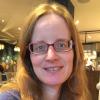
Elma Brenner
Elma Brenner (PhD, LMS) is a Research Development Specialist at Wellcome Collection and Co-Editor of Social History of Medicine. At Wellcome Collection she supports research on the medieval and early modern European collections and leads on work with early career researchers. Her own research focuses especially on health and religious culture in late medieval France and in 2020 she received a Dr. Edward H. Bensley Research Travel Grant from the Osler Library to study the Osler’s newly acquired French manuscript that is a focus of this working group. Her publications include Leprosy and charity in medieval Rouen (2015) and ‘From medieval embroidery to human skin: engaging with remarkable objects from the Wellcome Library’ (2016), and she is co-editor of Leprosy and identity in the Middle Ages: from England to the Mediterranean (forthcoming 2021).
-
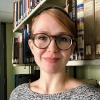
Anna Dysert
Anna Dysert is an associate librarian at McGill University Library, where she works as a cataloguer and metadata specialist for rare materials. She holds an MA from the Centre for Medieval Studies, University of Toronto, and an MLIS in Archival Studies from McGill’s School of Information Studies. She is currently working on a doctoral project on the 12th-century Latin manuscripts of Isaac Israeli’s Universal and Particular Diets.
-

Ross MacFarlane
Ross has worked on cataloguing archives, in outreach and engagement and designed numerous object and collections-based teaching and learning sessions, for a wide range of visiting groups at Wellcome Collection. At the core of his work is a close understanding of archives and other historical sources and a desire to promote the collections at Wellcome to the widest possible array of researchers.
-
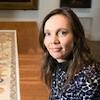
Julia Nurse
Julia Nurse is a Research Development Specialist at Wellcome Collection who currently runs the Exploring Research Seminar programme. With a background in art history and museum studies, her interests focus on the interaction of medicine, science and art within the context of print culturei n the Early Modern period. She sits on the committee of the Herbal History Research Network and has in recent times been focusing on research around the use of plants within herbals from the Medieval to Early Modern periods. She has contributed to numerous exhibitions and digital articles at Wellcome Collection, notably one on Plant Portraits which focused on one of the manuscripts at the heart of the research of this working group. Previously, Julia worked within the Prints and Drawings department at the British Museumas an Assistant Curator.
-
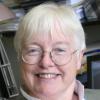
Faith Wallis
Professor Faith Wallis (Ph.D. Toronto 1985) is Professor Emerita in the Department of History and Classical Studies and the Department of Social Studies of Medicine at McGill University. Her research focuses on the textual and manuscript transmission of medical and scientific knowledge (particularly computus) in the Middle Ages. Her anthology of translated sources, Medieval Medicine: a Reader, was published by University of Toronto Press in 2010. She is presently editing the writings of Bartholomeus ‘of Salerno’, a key figure in the emergence of academic medicine in the twelfth century: Bartholomeus' Isagoge Commentary appeared with SISMEL in 2022. She is a Fellow of the Society of Antiquaries.
-
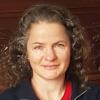
Mary Yearl
Mary Hague-Yearl (MLIS, PhD) is the Osler Librarian at the Osler Library of the History of Medicine and an Associate Member of McGill’s Department of Social Studies of Medicine. She wrote her doctoral thesis on the medical and spiritual functions of regular bloodletting in medieval monastic life. In 2020-2021, she has resumed her research as a Folger Institute Fellow, pursuing a project entitled “Bloodletting in the first 150 years of printing: a window into vernacular medicine.” In her work at the Osler Library, she often engages in lessons about representation in medicine; medical ethics; and subcultures of medical knowledge. It is related to this last area that she is most interested in engaging with this working group to discover new approaches to the study of the Library’s recipe books.